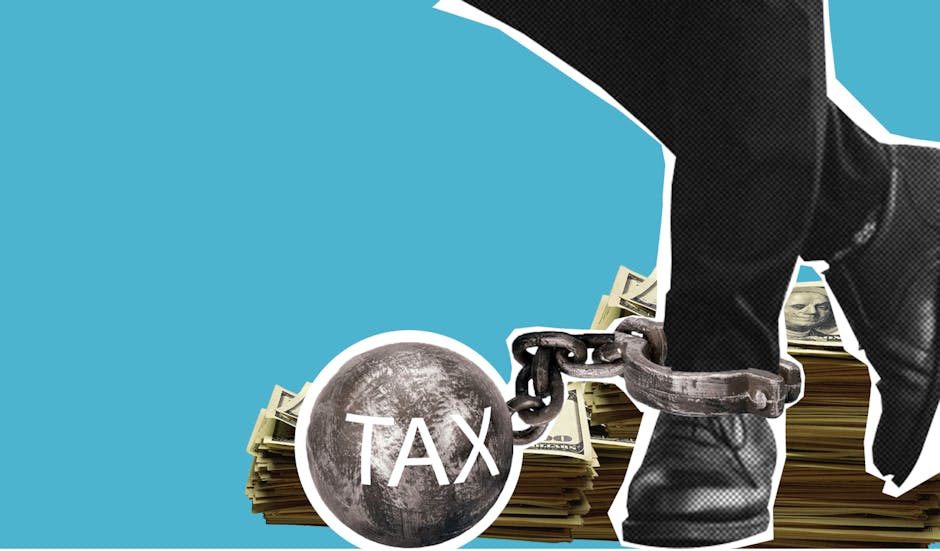The Role Of The Valuation Office Agency (Voa) In Your Council Tax Charges: What You Need To Know
Are you aware of the role that the Valuation Office Agency (VOA) plays in determining your council tax charges? If not, it's time to get informed and take control of this aspect of your finances.
The VOA is responsible for assessing the value of properties, which ultimately impacts how much you pay in council tax. By understanding their function and knowing what to expect, you can ensure that your property is accurately assessed and that you're paying a fair amount.
In this article, we'll delve into the various aspects of the VOA's role in property assessment, including council tax bands and their impact on charges. We'll also discuss how to challenge your property's valuation if you believe it has been inaccurately assessed, as well as the appeals process and timeline.
Additionally, we'll provide tips for ensuring accurate tax assessments so that you can confidently navigate this crucial part of homeownership or renting. Knowledge truly is power when it comes to understanding and managing your council tax charges!
The Function of the VOA in Property Assessment

In determining your property's value for council tax purposes, it's crucial to understand how the VOA plays a vital part in assessing and categorising each property.
The Valuation Office Agency (VOA) is responsible for conducting property evaluations and providing accurate estimations of each home's market value. These valuations are based on various factors, such as the size, location, and overall condition of the property.
This information is then used by local councils to determine the appropriate council tax charges for each household. When it comes to VOA responsibilities, their role doesn't end with initial assessments. They also maintain an up-to-date database that tracks any changes in properties or their surrounding areas.
In case of significant alterations to a building or its use, the VOA re-evaluates the property accordingly and may adjust its valuation if needed. This ensures that council tax charges remain fair and accurate for all residents throughout time.
It's important not only to be aware of how the VOA contributes to your council tax assessment but also how this process can impact you financially through different tax bands. Knowing where your home falls within these bands will provide you with essential insights into potential fluctuations in future council tax rates.
Up next, we'll delve deeper into understanding council tax bands and their impact on charges so you can stay informed about what affects your household expenses directly.
Council Tax Bands and Their Impact on Charges

Understanding council tax bands is crucial, as they directly affect how much you'll be charged for this mandatory expense. In England and Wales, properties are placed into one of eight different council tax bands (A to H) based on their market value as of April 1st, 1991. Each band has a specific charge associated with it, which can vary significantly depending on your local authority. Higher banded properties will inevitably face higher council tax charges; however, there are certain circumstances where exemptions or reductions may apply.
Being aware of these possibilities could help you gain more control over your financial obligations. Council tax exemptions are available for various groups such as students, people with disabilities, and individuals living in uninhabitable properties due to structural issues or active renovations. Additionally, some households may qualify for a reduction in their council tax band under specific conditions – often called 'band reduction strategies'.
For example, if your property has been adapted to meet the needs of a disabled person living there or if the property is now smaller than when it was originally valued in 1991 (due to demolition work), you might be eligible for a lower band assignment that results in reduced charges. While understanding and potentially benefiting from these exemptions and band reduction strategies can help alleviate some of the burden that comes with paying council taxes, it's also essential to ensure that your property is placed within the correct valuation band in the first place.
If you believe your home has been incorrectly assessed by the Valuation Office Agency (VOA), challenging its valuation might result in a more accurate reflection of its market value – ultimately leading to fairer taxation rates. In our next section about 'challenging your property's valuation', we'll delve deeper into this process and provide guidance on what steps you can take towards ensuring an equitable assessment that reflects genuine market value trends.
Challenging Your Property's Valuation

It's not uncommon for properties to be inaccurately assessed, with research indicating that up to 400,000 homes in England and Wales could potentially be in the wrong council tax band. Challenging your property's valuation can be a vital step towards ensuring you're paying the correct amount.
Incorrect valuation consequences can have financial implications on both you and your local council, as it impacts the funds allocated for essential services. By understanding the dispute resolution options available to you, you'll regain control over your council tax charges and ensure fair treatment.
To begin challenging your property's valuation, gather evidence supporting your claim that the Valuation Office Agency (VOA) has incorrectly banded your home. This may include comparing similar properties in your area or gathering historical sale prices of other homes within the same band.
Armed with this information, contact the VOA directly to discuss their initial assessment. The agency will review your case and take into consideration any new evidence presented, resulting in either an agreement to re-evaluate or a rejection of your challenge.
If you disagree with the VOA's decision after presenting new evidence or if they refuse to reassess at all, it is time to escalate matters further by lodging a formal appeal. In our next section on 'the appeals process and timeline,' we will dive deeper into how this procedure works and what steps are involved so that you can confidently navigate through it while maintaining control over this crucial aspect of homeownership responsibilities.
The Appeals Process and Timeline

Navigating the appeals process can be daunting, but don't worry – we've got you covered with a comprehensive timeline and important tips to help you stay in control while fighting for a fair property valuation.
First, let's address some common Appeals misconceptions that may cause unnecessary stress:
Misconception 1: You don't have to be an expert in property law or valuation to appeal your Council Tax band. Many successful appeals are made by regular homeowners who simply provide compelling evidence that their property is overvalued.
Misconception 2: The VOA won't retaliate or penalise you if you appeal your Council Tax band. Rest assured, it's within your rights to challenge the valuation of your property if you believe it's incorrect.
Misconception 3: Appealing is not an overly complicated process that takes too long. While it may take some time and effort, following the proper steps can make the appeals process smoother and more manageable.
Knowing your Taxpayer rights when appealing is crucial for maintaining control. To start the process, submit a 'proposal' (a formal request for review) to the VOA within six months of receiving notice of your initial valuation. The VOA then has up to two months to respond. If they agree with your proposal or offer an alternative solution, great! If not, however, you have four months from their response date (or six months from submitting the proposal if there's no response) to escalate the matter by lodging an appeal with the Valuation Tribunal.
Remember: timing plays a vital role in ensuring success during these stages; missing deadlines could result in delays or even dismissal of your case. So keep track of dates and stay on top of any correspondence with both VOA and Valuation Tribunal officials.
The key takeaway here is that knowledge is power. By understanding the appeals process, dispelling misconceptions, and asserting your taxpayer rights, you're taking charge of your property's valuation and ensuring a fair outcome.
As we delve into tips for ensuring accurate tax assessments in the next section, remember that staying informed and proactive will help you maintain control over your financial future.
Tips for Ensuring Accurate Tax Assessments

Well, who wouldn't wanna dive into the thrilling world of accurate tax assessments and chuckle at the absurdity of overpaying? As a taxpayer, it's essential to ensure that your property is assessed accurately by the Valuation Office Agency (VOA) to avoid paying more than you should in council tax.
Knowing your rights as a taxpayer and taking steps to improve assessment accuracy can save you money and give you a sense of control over your financial obligations.
One crucial step for ensuring accurate tax assessments is staying informed about local property market trends. By keeping an eye on recent sales prices for comparable properties in your area, you'll be better equipped to recognise if your home has been overvalued by the VOA.
Additionally, make sure that any improvements or alterations made to your property are accurately reflected in its valuation. If there have been significant changes since its last assessment, consider contacting the VOA proactively to request a reassessment before receiving an inaccurate bill.
Don't forget that as a taxpayer, it's within your rights to question and challenge an unfair council tax assessment. If you believe that your property has been inaccurately assessed, gather evidence – such as photographs or documents relating to any structural issues or defects – which could affect its value.
Armed with this information, approach the VOA with a well-reasoned argument for why they should reconsider their valuation of your property. Remember that open communication and co-operation with the VOA can go a long way toward ensuring fair treatment and accurate council tax charges for everyone involved.
Frequently Asked Questions
How does the Valuation Office Agency (VOA) ensure fairness and transparency in the valuation process?
When you're concerned about fairness and transparency in the valuation process, it's essential to understand how the Valuation Office Agency (VOA) tackles these issues.
The VOA maintains a level playing field by conducting regular valuations of properties, ensuring that council tax bands accurately reflect current market values.
If you feel your property has been incorrectly valued, don't hesitate to lodge valuation challenges with the VOA – they're committed to addressing any discrepancies and adjusting your council tax band accordingly.
By actively engaging with property owners and remaining open to feedback, the VOA demonstrates its commitment to upholding a transparent and fair system for everyone involved.
What factors are taken into consideration by the VOA when determining the value of a property?
When determining the value of your property, the Valuation Office Agency (VOA) takes into account a variety of factors to ensure an accurate assessment.
Property location plays a significant role, as it can influence the overall market value and demand for similar properties in the area. Additionally, they consider elements such as property type, size, age, layout, and any improvements or extensions made.
It's essential to remember that if you believe your property's valuation is incorrect or unfair, you have the right to initiate an appeal process. This way, you can take control of your situation and work towards achieving a fairer and more transparent valuation for your home.
How often are properties revalued by the VOA, and what circumstances might trigger a revaluation?
When it comes to property revaluations by the VOA, you'll find that they don't occur on a fixed schedule.
However, certain circumstances might trigger a revaluation, such as significant alterations to your property or changes in the local area.
It's worth noting that these revaluations can have varying impacts on your council tax bill – sometimes resulting in an increase or decrease.
If you believe there's been an error in your property's valuation, you can take control by initiating property appeals to challenge the VOA's decision.
Staying informed about revaluation processes and how they might affect you is crucial for maintaining control over your financial situation and ensuring you're paying the correct amount of council tax.
What is the role of the VOA in providing information and support to property owners regarding their council tax charges?
Valuable VOA support resources validate your venture for council tax charge clarity. As a property owner, you'll appreciate the practicality of receiving taxpayer assistance directly from the Valuation Office Agency itself.
In their role as an information provider, the VOA offers detailed guidance on how to ensure accurate valuation and fair charges. They assist you in navigating any potential changes or discrepancies that may arise. By utilising their vast knowledge base and analytical approach, you can confidently take control of your council tax situation while feeling supported by an expert establishment dedicated to serving your needs.
Are there any exemptions or discounts available for certain types of properties or property owners, and how does the VOA determine eligibility for these?
As a property owner, it's essential to understand the various exemption qualifications and discount eligibility options available for your council tax charges.
Exemptions and discounts can apply to specific types of properties or residents, such as students, disabled individuals, or unoccupied dwellings undergoing significant structural repairs.
To determine your eligibility for these benefits, you'll need to assess your circumstances carefully and follow the guidelines set by your local authority.
By staying informed about potential exemptions and discounts, you can take control of your finances and ensure you're not paying more than necessary in council tax charges.
Conclusion
In the end, it's all about knowing your rights and taking charge of your financial journey. Imagine confidently walking through the halls of your local council, equipped with the knowledge needed to challenge an unfair tax assessment. You've conquered the intricate web of the valuation office agency and safeguarded your hard-earned money.
Remember, understanding the role of the VOA is crucial in ensuring accurate council tax charges. Let this newfound expertise guide you as a beacon on your pursuit for fair property taxation.
Check your council tax and calculate your potential refund: check by postcode or check by council.

